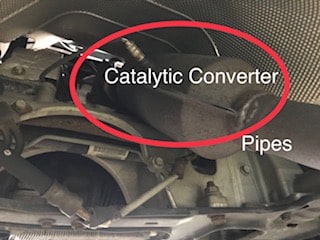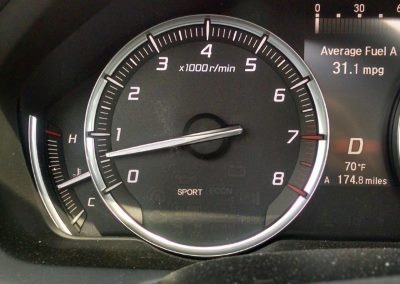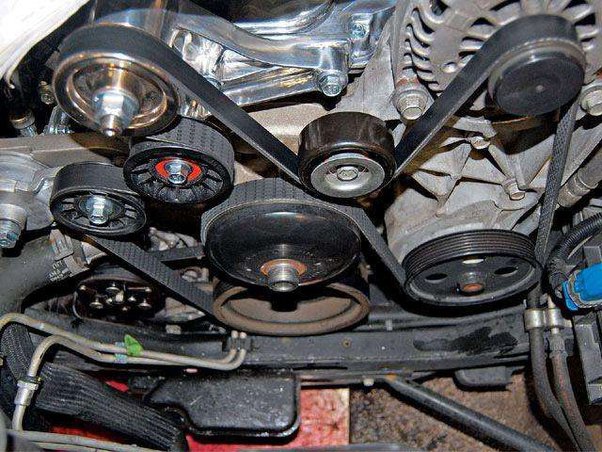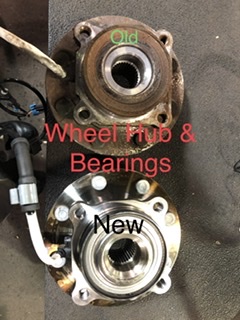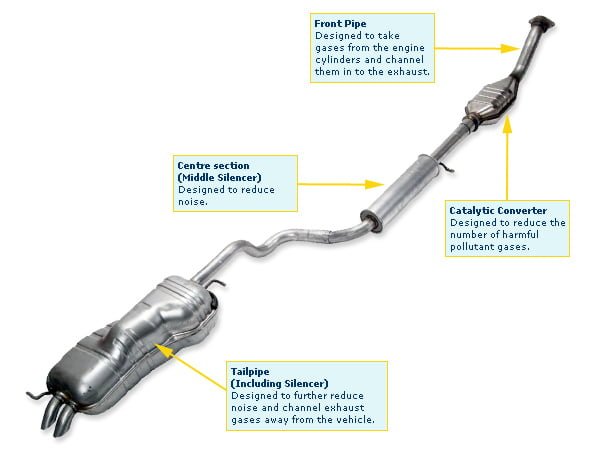Are Exhaust Leaks Bad for Your Car
Exhaust leaks are detrimental to your car, potentially causing health risks and engine damage. Ignored leaks can result in reduced fuel efficiency and vehicle performance.
Understanding the impact of exhaust leaks on your vehicle is crucial for maintaining optimal performance and safety. Exhaust systems are designed to channel harmful gases away from the car’s cabin, ensuring a safe breathing environment and proper engine operation. A leak within this system can introduce toxic fumes such as carbon monoxide into the passenger compartment, posing serious health risks to occupants.
Moreover, exhaust leaks can affect the precise calibration of engine management systems, leading to reduced fuel economy and compromised engine performance. Routine inspections can catch these leaks early, preventing the escalation of damage and maintaining the longevity of your vehicle’s engine. Regular maintenance not only secures your health and safety but also preserves the value and function of your car.
The Hazards Of Exhaust Leaks
Driving a car with an exhaust leak is a risk no one should take. It endangers health and lowers car performance.
Health Risks From Toxic Fumes
Everyone is at risk when toxic fumes escape. These fumes contain harmful gases.
- Carbon monoxide – an odorless killer.
- Nitrogen oxides – cause breathing issues.
- Hydrocarbons – irritate eyes and skin.
Children and pets are especially vulnerable.
Compromised Vehicle Performance
An exhaust leak diminishes engine efficiency.
| Performance Aspect | Impact of Exhaust Leak |
|---|---|
| Fuel Efficiency | Decreases, costing more money. |
| Power Output | Reduces, leading to a sluggish ride. |
| Noise Level | Increases, creating an obnoxious roar. |
Safety features may also falter. Sensors may give incorrect readings.
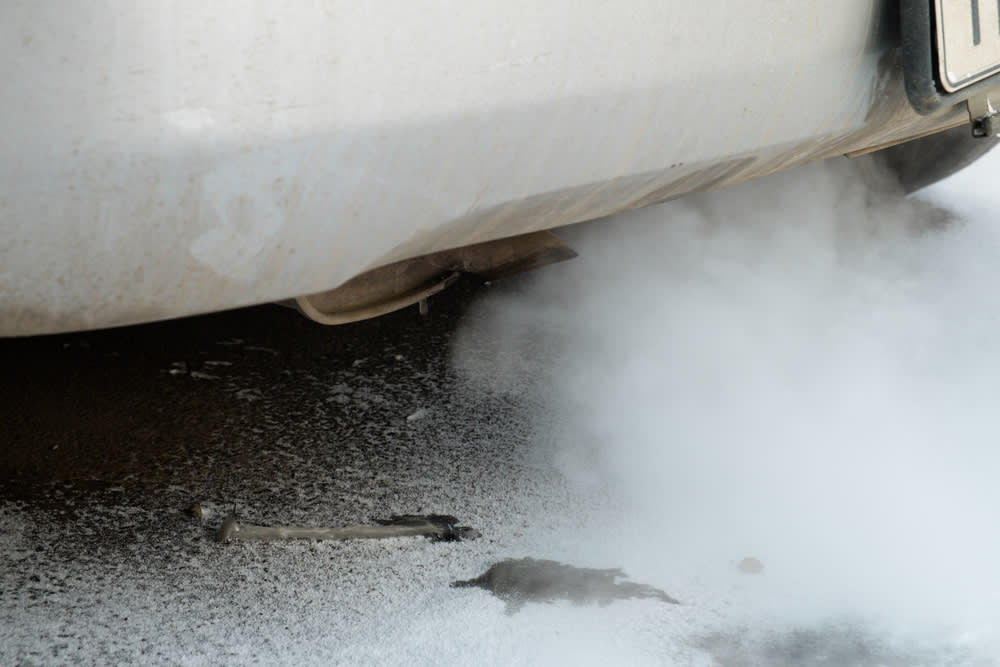
Credit: www.yourmechanic.com
Signals Your Car Has An Exhaust Leak
Noticing something off with your car? It might be an exhaust leak. This issue can harm your car’s performance and safety. Let’s explore the tell-tale signs that your car might be experiencing an exhaust leak. Spotting these early can save you time and money!
Unusual Noises From The Exhaust System
One clear indicator of an exhaust leak is a change in how your exhaust sounds. Listen for hissing, popping, or a loud rumble. These noises suggest escaping fumes where they shouldn’t.
Decrease In Fuel Efficiency
If you’re visiting the gas station more often, take note. An exhaust leak can lead to reduced fuel efficiency. Your engine must work harder, using more fuel, when an exhaust leak is present.
Vibrations And Misfires
Feel a new, strange vibration in your pedal, steering wheel, or car seat? That could be an exhaust leak. Vibrations point to fumes disrupting engine function, which can also lead to engine misfires.
| Signal | Description | Consequence |
|---|---|---|
| Unusual Noises | Hissing or popping from exhaust | Possible exhaust damage |
| Fuel Inefficiency | More frequent gas station visits | Increased fuel costs |
| Vibrations | Shaking steering wheel or seat | Reduced driving comfort |
The Journey Of Exhaust: From Engine To Atmosphere
The journey of exhaust is a critical tale of health for your car and the environment. On this journey, exhaust gases travel a complex path. They leave the engine and venture into the atmosphere. It is vital to understand the impact of leaks on this route.
Essential Components Of The Exhaust System
The exhaust system is not just a pipe. It has several key components, each with a specific role:
- Exhaust Manifold: Attaches to the engine, collects exhaust gases.
- Oxygen Sensors: Monitor and help adjust the air-to-fuel ratio.
- Catalytic Converter: Reduces harmful emissions from the exhaust gases.
- Muffler: Decreases noise from the exhaust process.
- Exhaust Pipes: Channels the gases out of the vehicle.
- Tailpipe: The exit point for the gases into the atmosphere.
How Leaks Disrupt The Flow
Exhaust leaks are deceptive enemies for cars. They break the system by allowing gases to escape prematurely. This causes:
| Consequence | Impact on Vehicle |
|---|---|
| Poor Fuel Efficiency: | The engine works harder, burning more fuel. |
| Reduced Performance: | Power and acceleration can decrease. |
| Health Risks: | Carbon monoxide could enter the cabin. |
| Environmental Harm: | More pollutants are released into the air. |
| Legal Issues: | Failing emissions tests can lead to fines. |
| Noise Pollution: | Louder exhaust sounds affect community peace. |
Detecting And Diagnosing Exhaust Leaks
An exhaust leak can be a serious issue for any vehicle. It can lead to decreased fuel efficiency, increased pollution, and potentially dangerous situations for passengers due to the release of harmful gases. Detecting and diagnosing leaks early can save time, money, and ensure vehicle safety. Here are strategic ways to identify a potential exhaust leak.
Visual Inspection Tips
Start with a simple yet thorough visual inspection. Look closely for any signs of rust or damage on the exhaust system. Check for holes, cracks, or loose connections. Specifically, pay attention to the exhaust manifold, pipes, and muffler.
- Examine the exhaust manifold — Look for obvious cracks or missing bolts.
- Inspect pipes and mufflers — Seek out any rust or puncture marks.
- Check connections — Ensure clamps and joints are tight and intact.
Tools And Techniques For Leak Detection
Some tools and techniques can help pinpoint the exact location of an exhaust leak.
| Tool/Technique | Usage |
|---|---|
| Soapy water | Apply to suspected areas and look for bubbles when the engine is running. |
| Listening device | Use a mechanic’s stethoscope to listen for hisses near the exhaust system. |
| Smoke machine | Push smoke through the system and watch where it escapes from. |
Perform these tests in a well-ventilated area. Safety is paramount when diagnosing vehicle issues. Early detection of exhaust leaks can prevent costly repairs and maintain the car’s optimal performance.
Fixing The Breach: Repair Solutions
Exhaust leaks spell trouble for your car. They can affect performance and safety. Quick repairs are essential. Good news is, some can be simple DIY fixes. Others need a pro’s touch. Read on to discover repair solutions for your exhaust leaks.
Diy Approaches To Minor Leaks
Small exhaust leaks can be a DIY fix. You need the right tools and parts. It saves money. It gives you experience. But be careful. Make sure you follow these steps:
- Locate the leak: Listen for hissing or popping sounds. Look for black soot.
- Use sealant: Apply exhaust sealant to small holes. Let it cure as instructed.
- Patch it up: For tiny holes, a heat-resistant epoxy might work.
Remember, safety first. Work in a well-ventilated area. Wear protective gear.
When To Seek Professional Help
Some exhaust leaks need expert hands. Look for these signs:
- Can’t find the leak? Get a pro.
- Is the leak bigger than a pinhole? Pro time.
- Welding or pipe replacement? Seek a mechanic.
A professional will do a thorough job. They will ensure your car runs smoothly and safely. They have the tools. They have the experience.
Preventing Future Exhaust Woes
The health of your car depends heavily on the condition of its exhaust system. Preventing future exhaust woes is key to ensuring you keep your vehicle running smoothly. Ignoring small issues may lead to bigger, costly repairs. Here’s how to stay on top of exhaust maintenance.
Routine Maintenance Strategies
Regular checks can save you from the headaches of exhaust problems. Here are some strategies:
- Inspection: Check your exhaust system bi-annually.
- Listen: Stay alert for unusual noises signaling leaks.
- Address Issues Early: Fix small problems promptly.
Maintaining a schedule for these strategies will help keep your car’s exhaust in top condition.
Upgrades And Replacements
Sometimes, an upgrade or replacement is necessary for a long-term fix:
| Component | Signs of Wear | Action |
|---|---|---|
| Muffler | Rust or holes | Replace if damaged |
| Oxygen Sensor | Poor performance | Upgrade for efficiency |
| Pipes | Visible corrosion | Consider stainless steel |
Choose quality parts that match your car’s specifications for the best results.
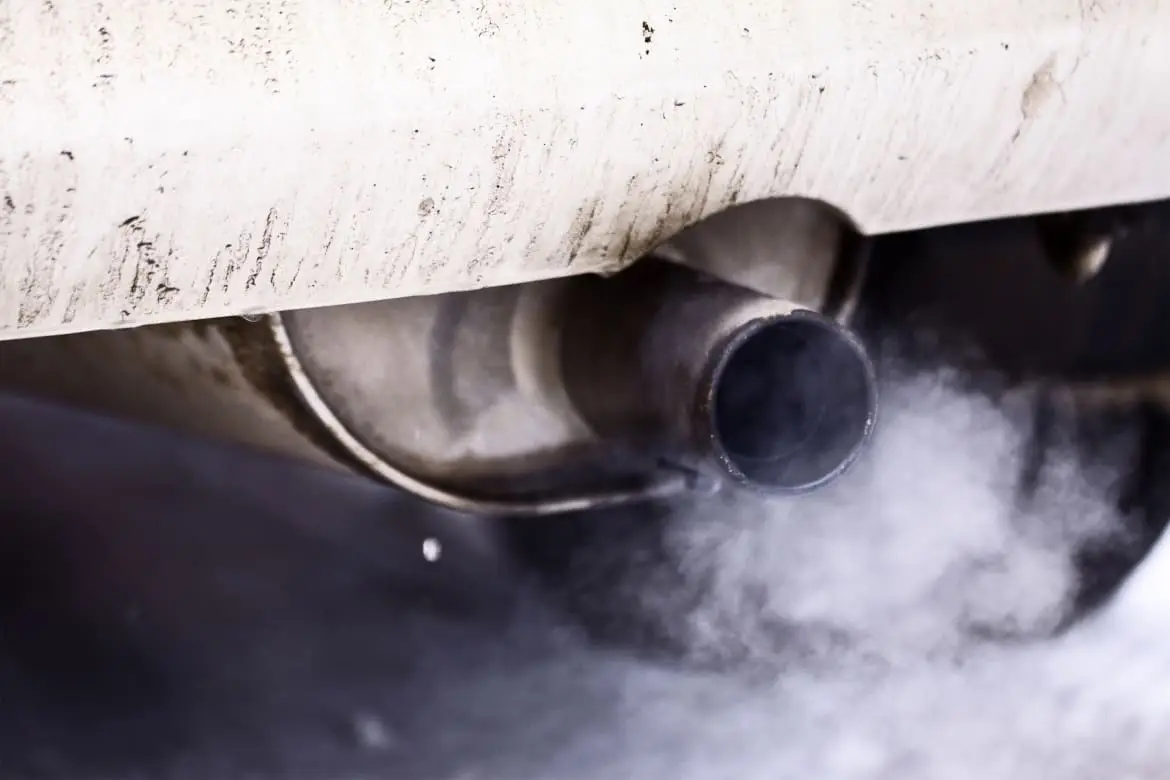
Credit: www.cars.com
Frequently Asked Questions Of Are Exhaust Leaks Bad For Your Car
Can Exhaust Leaks Affect Engine Performance?
Exhaust leaks can lead to reduced engine performance. They disrupt proper exhaust flow and alter the air-fuel mixture. This change can cause a drop in power, acceleration, and fuel efficiency.
Is It Safe To Drive With An Exhaust Leak?
Driving with an exhaust leak poses safety risks. It can result in harmful gases entering the cabin. Long-term exposure is especially dangerous, leading to health issues. Immediate repair is advisable.
What Are Common Symptoms Of Exhaust Leaks?
Common symptoms include a louder exhaust sound, a hissing or tapping noise, and a smell of gas inside the car. Decreased fuel efficiency and acceleration may also indicate a leak.
How Does An Exhaust Leak Impact Fuel Economy?
An exhaust leak can negatively impact fuel economy. It causes the engine to run less efficiently, requiring more fuel to produce the same amount of power, thus increasing consumption.
Conclusion
To wrap it up, addressing exhaust leaks is crucial for your car’s health and your safety. These leaks can lead to performance dips and even pose serious risks. Regular inspections by a professional are recommended to ensure your vehicle runs smoothly.
Remember, early detection saves time and prevents costly repairs. Keep your car in top shape to enjoy a safer driving experience.

